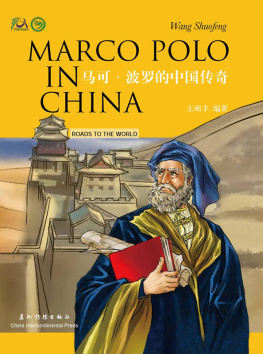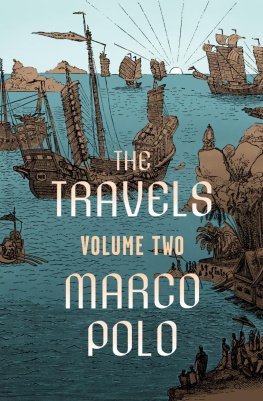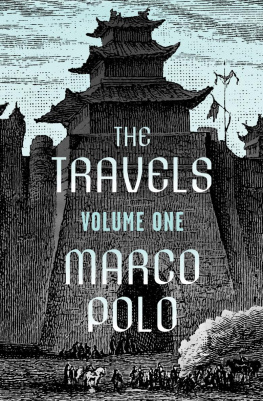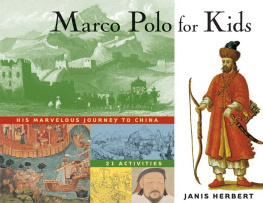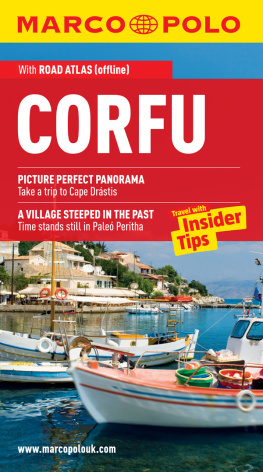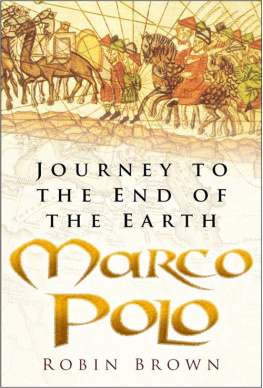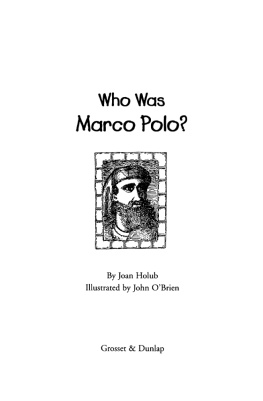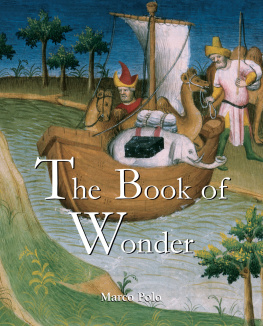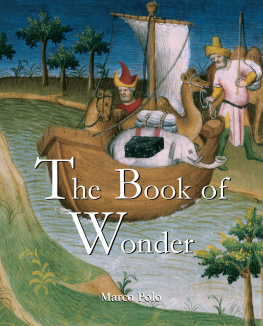
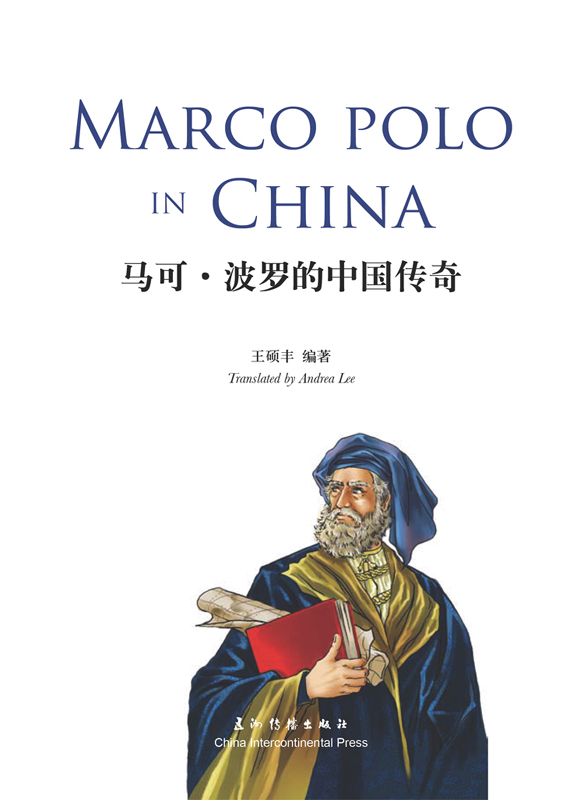
Contents
Foreword
I t has been a long and exciting history of tremendous cultural exchange between China and other countries. In terms of culture, economy, ideology, and personnel, these exchanges between China and other countries can be dated back to the times of Qin and Han dynastiesdirectly or indirectly, by land or sea. The long-term and multi-faceted cultural exchange helps the world to understand more about China and the rest of the world, enriching the common wealth of mankindboth materially and spiritually.
The book series entitled Roads to the World offers the most splendid stories in the entire history of Sino-foreign cultural exchange. We hereby offer them to foreign students learning the Chinese language, and to foreign readers who have a keen interest in Chinese culture. These stories depict important personalities, events, and phenomena in various fields of cultural exchange between China and other nations, and among different peoples. By reading the books, you may understand China and Chinese civilization profoundly, and the close link between Chinese civilization and other civilizations of the world. The books highlight the efforts and contributions of Chinese people and Chinese civilization in the world's cultural interchange. They reflect mankind's common spiritual pursuit and the orientation of values.
This book is about the Italian traveler Marco Polo, who had stayed in China for 17 years in the 13th century. Marco Polo wrote his memoir of China in his book, The Travels of Marco Polo, which became the first book that introduced China to the Western world. The book instilled in many Europeans an interest in the Orient, and had a strong impact on the discovery of new travel routes in the world. Marco Polo also became a significant representative of early cultural exchanges between the East and West.
Roads to the World
1317
Youthful Ambitions
M arco Polo was born in 1254 in Italy's famous city, Venice. His father Nicolo Polo and uncle Matteo Polo were merchants and were out running their trade since Marco Polo was a little boy. Marco Polo lived with his mother, and had not once met his father, until he was 15 years old. At that time, Marco Polo's mother had passed away and he was living with his aunt.

Marco Polo's hometown,Venicethe beautiful water city.
Marco Polo would remember that particular morning in 1269, when the excited shrills of his aunt next door drew him away from his studying. He rushed into his aunt's room and saw her chatting merrily with two men, whom he had never met. When his aunt saw him, she immediately introduced the two men to him, and while pointing to the slightly older man, she said, "Boy, he is your father, whom you've been thinking night and day!"

Portrait of Marco Polo.
Marco Polo prided himself to be a young man of considerable inner strength, and he hardly cried when facing obstacles. However, at that very moment, he was unable to restrain his emotions. He fell into his father's arms, and broke into tears. Here he was, the father that he had met for the first time in 15 years. For the past 15 years, all he could do was to stand at the coast, hoping in vain for the ship carrying his father to fall into sight. While all he could do before was to imagine how his father might look, now he could finally take into view his father's face.
Nicolo Polo was equally emotional. He was struck by the appearance and built of his son. Marco Polo was rather tall and lanky; his face was a little pale, and his thick, curly eyelashes added a fine touch to his blue eyes, which were aglow with intelligence and wisdom. Warmed with the thought that his son would soon grow up to be an honest, intelligent and stable young man, Nicolo Polo grinned with pride and satisfaction.
Nicolo Polo took out an assortment of presents from his luggage. Among them were sturdy cotton fabric, fine linen, intricate silk fabric, muslin, and multi-colored gemstones. Marco Polo was filled with curiosity and he asked his father, "Where did you get all these beautiful and expensive gifts?"
His father replied, "China, and Persia."
"China? Where's that?"
Marco Polo felt a little perplexed. Is there really such a place called China? Are there many treasures to be found there? What kind of place is China? It was then that he recalled what he once heard, that there exists in China a river filled with valuable treasures. Marco Polo thought: "That must be the place where Father and Uncle picked up all those treasures."
He could not help but ask his father, "Is China rich? Did you make friends with the Chinese people?"
"Certainly, we made many friends in China, including the great Kublai Khan!" answered Nicolo Polo, proudly.
"What's a 'Khan', Father?" asked Marco Polo.
"Kublai Khan is the ruler of China. He's a Mongolian, who called their emperor 'Khan'."
"Emperor? You made friends with the emperor!" Marco Polo was visibly amazed. He kept insisting to his father to tell him all he knew about China. Looking at how curious his son was, Nicolo Polo started telling him, in detail, his experience in China.
When Nicolo and Matteo Polo were trading in Constantinople (present-day Istanbul in Turkey), they were acquainted with an emissary to China. Over the few days that they spent together, they got along very well. The emissary told them that Kublai Khan had never seen an Italian and he would definitely be thrilled to have the chance to meet with them, and would certainly bestow them with rich rewards. With that, Nicolo and Matteo Polo left with the emissary for China.
In 1266, they arrived in the royal city of Kublai Khan, who hosted a grand feast to welcome the foreign visitors.
Life in China was pleasant and happy, but soon, Nicolo and Matteo Polo started to miss their families in Italy. They decided to return to Italy. Upon knowing of their impending departure, Kublai Khan assigned a special mission to the Polo brothers. He wanted them to send a letter from him to the Pope in Rome. In his letter, Kublai Khan requested the Pope to dispatch a hundred scholars who were well-versed in Christian doctrine, astronomy, geography to China and research with the local scholars.

The Mediterranean Sea in the 13th century.
After hearing his father's story about China, Marco Polo was scarcely satisfied. He hungered for more knowledge about China. He asked his father, "What is China like?"
To that, his father replied, "China is a land of mountains, rivers and lakes. There are deserts and prairies. It is beautiful. It is a huge country, bigger than any country in the world in terms of its size and population. It is the richest country ever."
Marco Polo had seemingly endless questions about China for his father. Nicolo Polo told him, jokingly, "Silly boy, with that many stories about China, I'm afraid I won't be able to finish telling them all to you in three days."
"That's great! Then I'm not going to eat nor sleep for the next three days and listen to your stories of China," smiled Marco Polo, innocently.
Next page
